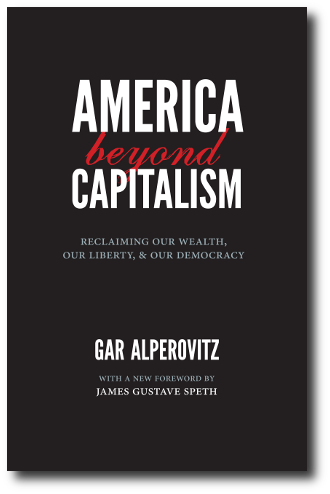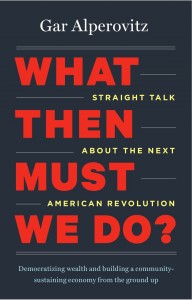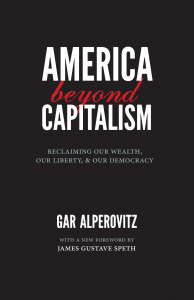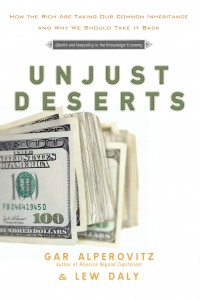Originally published in Classism Exposed on May 18, 2015.
I often open my lectures by explaining that the current distribution of wealth in the United States—with the richest 400 people owning more of the country than the poorest 180 million combined—is, essentially, a medieval arrangement, with a vast underclass and a tiny elite. After one talk, a medieval historian approached me to offer a correction—today’s distribution of wealth is, in fact, far more unequal than anything seen in the Middle Ages. Nevertheless, the fact remains that we are living in profoundly unequal times, and without addressing this fundamental imbalance in who owns our economy, we are going to be stuck with a politics that answers to the rich, rather than the needs of the poor or even the (shrinking) middle class.
Such a transformation is obviously not going to be quick or easy: it is the work of at least a generation or two. But there are thousands of small (and even some medium-sized) projects across the country that understand the necessity of this transformation, and are working to democratize wealth in the here and now by building cooperative and community owned economic institutions. It’s my belief that such work lays important groundwork—building skills, ideas, experience and creating shared values—for the larger scale transformations we’ll ultimately need to really address the problem. But even at a small scale, we can see clearly how ownership translates into power.
Consider the Prospera network in the San Francisco Bay Area: five worker cooperatives all incubated by a central non-profit, and all working to empower the Latina women housecleaners who collectively own each cooperative. (A sixth co-op, in the food sector, is in the early stages of development.)
Domestic labor often reveals the realities of class in a particularly dramatic way, with low-income workers, largely women, working directly for the wealthy in the latter’s own homes. Abuse and exploitation are all too common, as the work is done in private situations with little regulation, and the precariousness of the low-wage workers in the sector is magnified for many by their exposure to the violence of deportation.
But by coming together in a worker cooperative, these workers have been able to push back against this: owning a cooperative together gives the stability, the support, and the power to set their own conditions of work, not just in terms of hours and pay, but around important ecological and health issues, too—owning their own company gives them the power to choose eco-friendly cleaning supplies rather than suffering from long-term exposure to more toxic ones.
Brought together in relations of mutual support both within each cooperative business and as a larger network of institutional skill and memory, the workers can overcome the pervasive atomization and isolation which all too often characterize the lives of the precarious working class. And by determining their own working conditions, the cooperative’s power spreads beyond their individual workplaces—the threat of a good example they provide can help provide a base for broader sectoral reform and regulation.
All of this comes through ownership and cooperative organization: The challenge for all of us concerned about the undemocratic structure of concentrated wealth in our country today is to build a path to scale up and generalize these kinds of hopeful experiments—step by step, over time, and on steadily to ever greater impact.
 AMERICA BEYOND CAPITALISM
AMERICA BEYOND CAPITALISM



 Agenda
Agenda  Posterboard
Posterboard 